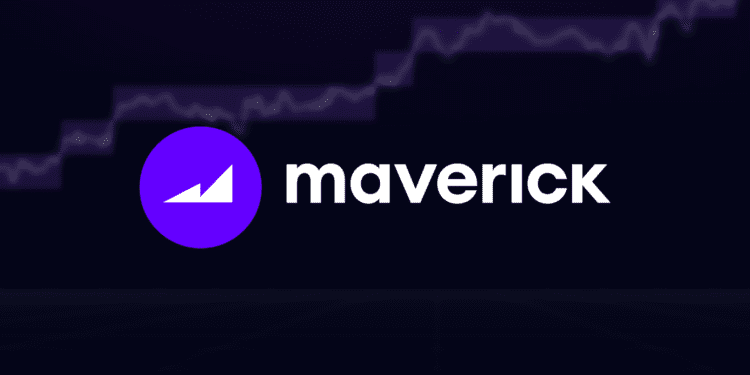- Maverick Protocol has launched its decentralized exchange (DEX) on Ethereum, featuring a native smart contract-based automated market-making engine (AMM).
- According to the protocol, its novel AMM offers more customization and higher capital efficiency than Uniswap, the top decentralized exchange UniSwap.
- Maverick is launching with six liquidity pools, including one with popular liquid staking protocol Lido Finance and aims to be among the top five DEXs by volume within the next six months.
Maverick Protocol, a decentralized finance (DeFi) platform, has revealed the launch of its decentralized exchange (DEX) on Ethereum. The team of developers behind the protocol announced this on Wednesday.
The new DEX is powered by a native smart-contract-based (AMM) engine, which the Maverick team has built for over a year. The exchange enables investors to earn more revenue than on UniSwap, one of the leading DEXs. Bob Baxley, chief technology officer at Maverick, revealed this in an interview with CoinDesk.
The protocol’s addition to the DEX space is timely, as investors are currently seeking decentralized trading platforms after the collapse of the FTX exchange and are concerned about the stability of centralized exchanges.
Maverick began with six liquidity pools, which are similar to trading pairs on centralized exchanges and have a combined size of more than $10 million, to trade tokens of the most significant liquid staking protocol Lido Finance, decentralized stablecoin issuer Liquity, and web3 identity data network Galxe.
Higher Capital Efficiency
Maverick’s unique selling point is its dynamic automated market maker behind the protocol, which enables investors to capture more fees and maximize revenues by providing liquidity with a customizable liquidity distribution tool.
DEXs are built around liquidity pools, and investors can earn rewards from transaction fees for providing liquidity to make a market while traders can exchange assets.
This feature allows liquidity providers to automate their distribution range and bet on the future price of the liquidity pool’s assets. Investors’ capital can work more efficiently, covering broader price movements, with fewer inactive periods when their capital is idle because the asset price is out of range.
Liquidity providers on Maverick can now capture ten times more potential income for liquidity providers compared to UniSwap. Maverick claimed this after running a backtest for last month, which reached 1,195% of average capital efficiency without any inactive periods. This efficiency translates to more consistent fee generation.
Liquidity Pools for Stablecoins and Liquid Staking Derivatives
Crypto traders can initially access six liquidity pools on Maverick, with an initial liquidity total value locked (TVL) of more than $10 million. Maverick has integrated the popular liquid staking protocol Lido Finance, making its wrapped ether derivative a key pool asset.
The platform also partnered with decentralized stablecoin issuer Liquity to offer trading pools for its LUSD stablecoin against ETH and wstETH. Furthermore, it has partnered with Galxe for a wstETH/GAL pool. Those investors who deposit wstETH into the pools may also earn the derivative’s staking reward and the usual revenue by providing liquidity.
DEX Competition
Decentralized exchanges compensate for the most significant sector within DeFi, with a combined $18.8 billion of total value locked on the protocols, according to data from DefiLlama. The leading platforms are UniSwap and the stablecoin-focused swap protocol Curve Finance. However, DEXs execute only 5% of the daily trading volume of centralized exchanges, partially due to their less-than-user-friendly interfaces and occasionally subpar efficiency.
Baxley revealed their goal is to be among the top five decentralized exchanges by volume within the next six months. Maverick’s dynamic DEX is a promising addition to the DeFi space, offering higher capital efficiency and better revenue opportunities for liquidity providers.
Maverick’s developer firm raised $9 million of venture capital from backers, including Circle Ventures, LedgerPrime, and Jump Crypto, according to Crunchbase. Pantera Capital was the latest investor last year.














